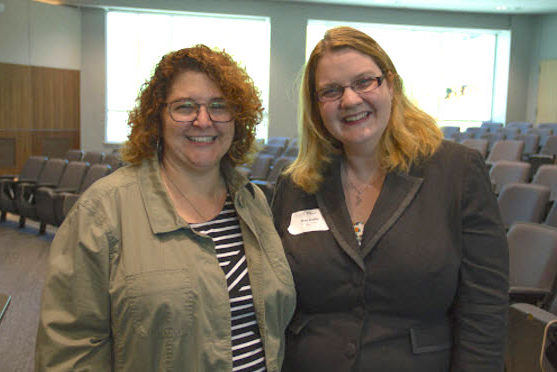From computer summer camp to showing the community why HPC matters.
Guest post by: Alisa Alering, Science Node
First published on Science Node on 15th October 2019
Our new series, Paths to HPC, showcases women working in high-performance computing. Our hope is that by highlighting these trailblazers—and the sometimes unique paths they followed into the field—other women will feel inspired to envision themselves in similar roles.
Today we talk with Melyssa Fratkin, industry programs director, Texas Advanced Computing Center (TACC), UT Austin.
What was your path to working with HPC?
I started working for the Coalition for Academic Scientific Computation (CASC) in 2001. It was definitely not my original career path, but when I graduated with my MBA in e-commerce in 2001, all of the dot-coms had just gone bust, and CASC needed help. So I learned about HPC from the academic and federal perspectives.
Then I went to work for the Council on Competitiveness with their HPC Advisory Group and learned about HPC from the industry perspective—both manufacturers and users. When I was hired to start the industry affiliates program at TACC in 2006, I already had a good handle on the challenges that all three groups were facing (turns out, they’re very similar), and how to create industry-academic partnerships to address the issues. I’m still helping to address those challenges—and new ones—every day at TACC.
What do you like about working with HPC?
In the past few years, TACC has supported research in rocket design, reservoir modeling, weather prediction, cancer detection, plant and animal genomics, and so many others.
There’s always a great new story about research breakthroughs, or new discoveries that have happened because of HPC, or lives saved, or crises averted.
I feel like we’re making a difference in the world, and one of my favorite parts of my job is giving presentations about what we do so that the community can learn more about us. And showing people the data center, so they can get an idea of the scale of the computing resources that are needed to make these amazing breakthroughs.
What are some of the challenges you have faced in following this path?
I am something of a techie/geek, but I didn’t get a degree in CS. I’ve been playing with computers since I was 12 (I even went to computer summer camp), and have ended up being the de-facto IT person at a couple of my jobs, but I’m not a programmer. So I don’t always feel like I have the technical knowledge that I need to answer questions; but I know whom to ask around TACC, and I take lots of notes.
I’m also frequently one of the few women in the room, and I’m well aware of the lack of representation of women and minorities in computing. It’s why I co-founded Texas Women in HPC with Carolyn Devany of Data Vortex Technologies. Part of the challenge is making sure that women (and other under-represented groups) who do decide to go into computing feel supported and empowered, not alone.
There are lots of amazing women doing incredible things in computing around the state; we need to show up for each other, and mentor young people to come along for the ride – and push them to go farther than we have!
Any mentors or role models you would like to thank?
Sue Fratkin (my mother) was the Washington Liaison for CASC for 25 years. She made sure people in Congress and the federal agencies knew what HPC was and how important it is to our national economy and competitiveness.
She’s still involved, but now she’s helping young people find out how great computing can be, and how to find their own voices in advocating for things they care about. I have carved a slightly different path, but I wouldn’t be here without her.
The other is Toni Collis, founder of Women in HPC, whom I admire so much (and just adore in general!). She took the bull by the horns and turned those discussions and concerns we had for years about the lack of women in HPC into a global movement. It’s so empowering to meet so many brilliant, accomplished women, and know that we are all there to support each other.
About the author: Alisa Alering, Managing Editor, Science Node

Originally trained as a librarian, Alisa loves tracking down the science behind her stories and learning something new about technology every day. With previous experience as a freelance writer and photo editor, she has held positions at Indiana University Press, PBS, and Google and earned degrees from Penn State and Indiana University. She particularly enjoys writing about women and diversity in technology, digital humanities, and the intersection of science and the natural world.
About Science Node

Science Node is an online magazine that connects the global research community, exploring how tech works and showing why it matters to our everyday lives. sciencenode.org

